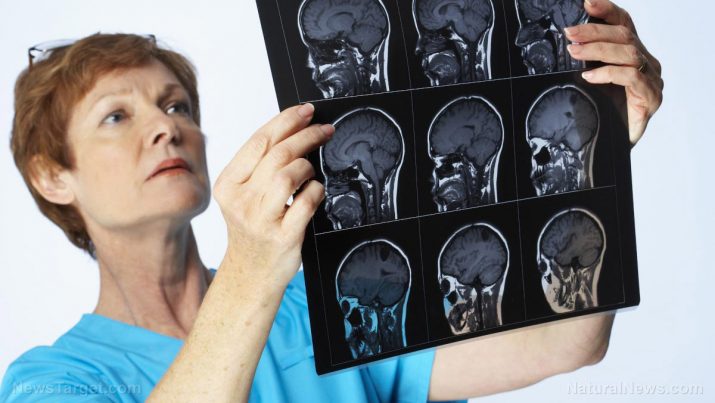
Herniation of the cerebellar tonsils – causes, side effects and treatments at NaturalPedia.com
Wednesday, April 18, 2018 by Janine Acero
http://www.naturalpedia.com/herniation-of-the-cerebellar-tonsils-causes-side-effects-and-treatments-at-naturalpedia-com.html

A brain herniation, or cerebral herniation, is typically the result of swelling in the brain. The swelling may be the result of a head injury, stroke, hemorrhage, or brain tumor.
Other reasons for an increase in pressure in the skull include:
- Abscess (collection of pus) from a bacterial or fungal infection
- Buildup of fluid in the brain (hydrocephalus)
- Brain surgery
The swelling puts pressure on brain tissues (referred to as increased intracranial pressure), causing the tissue to be forced away from its normal position.
A brain herniation is a medical emergency and is often fatal if not treated immediately.

Known side effects and risk factors of herniation of the cerebellar tonsils
A brain herniation is a serious emergency that requires urgent medical attention. Some of the symptoms include:
- Dilated pupils
- Headache
- Drowsiness
- Difficulty concentrating
- High blood pressure
- Loss of reflexes
- Seizures
- Abnormal posturing, rigid body movements, and abnormal positions of the body
- Cardiac arrest
- Loss of consciousness
- Coma
People with blood vessel problems, such as an aneurysm, are at a higher risk of having a brain herniation.
Any activity or lifestyle choice that puts you at risk for a head injury can also increases your risk of brain herniation.
Body systems harmed by herniation of the cerebellar tonsils
People with brain tumors or blood vessel problems, such as an aneurysm, are at a higher risk of having a brain herniation.
If not treated right away, the movement of brain tissue can impair vital structures in the body.
Complications of brain herniation include:
- Brain death
- Respiratory or cardiac arrest
- Permanent brain damage
- Coma
- Death
Food items or nutrients that may prevent herniation of the cerebellar tonsils
The following food items are known to support overall brain health:
- Walnuts (and other nuts and seeds)
- Eggs
- Blueberries
- Red wine
- Green tea
- Avocado
- Kale (and other cruciferous veggies)
- Salmon
- Coffee
- Whole grains
Your brain also needs other nutrients for optimal functioning. These include:
- Complex carbs
- Proteins
- Healthy fats
- B-vitamins
- Vitamin D
- Magnesium
- Omega-3 fatty acids
- Antioxidants
- Water
Treatments, management plans for herniation of the cerebellar tonsils
Treatment is aimed at relieving the swelling and pressure inside the brain that is causing the brain to swell. To reduce swelling and pressure, treatment may involve:
- Surgery to remove a tumor, hematoma (blood clot), or abscess
- Surgery to place a drain called a ventriculostomy through a hole in the skull to get rid of fluids
- Osmotic therapy or diuretics (medications that remove fluid from the body) to pull fluid out of the brain tissue, such as mannitol or hypertonic saline
- Corticosteroids to reduce swelling
- Surgery to remove a part of the skull to make more room (craniectomy)
While the cause of the brain herniation is being addressed, the person being treated may also receive:
- Oxygen
- A tube placed in their airway to support breathing
- Sedation
- Medications to control seizures
- Antibiotics to treat an abscess or to prevent infection
In addition, a person with a brain herniation will require close monitoring through tests such as:
- X-ray of the skull and neck
- CT scan
- MRI scan
- Blood tests
Where to learn more
Summary
A brain herniation, or cerebral herniation, is typically the result of swelling in the brain. The swelling may be the result of a head injury, stroke, hemorrhage, or brain tumor.
The swelling puts pressure on brain tissues, causing the tissue to be moved from its original position.
A brain herniation is considered a medical emergency and is fatal if not treated immediately.
Sources include:
Tagged Under: Tags: Herniation of the cerebellar tonsils





